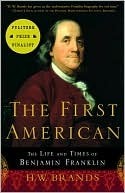This inversion of moral cause and effect came as an epiphany to Franklin. It allowed him to reconcile his skepticism with his practicality. A man had to conform his conduct to prevailing mores if he wished to get ahead; he did not have to conform his convictions to the prevailing theology. With a sigh of relief almost audible from a distance of nearly three centuries, Franklin codified his new thinking in what he called his “Articles of Belief and Acts of Religion,” dated November 20, 1728. Borrowing from Cato, he declared, “I hold: If there is a Power above us (and that there is all nature
...more
Welcome back. Just a moment while we sign you in to your Goodreads account.


